|
|
|
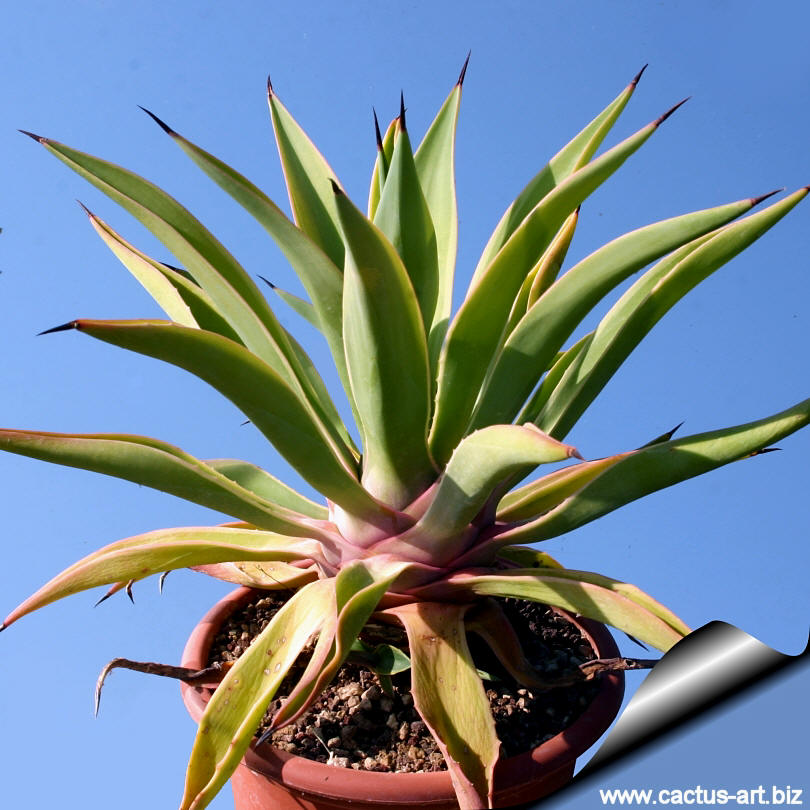
Agave desmetiana variegata
has a graceful, curved shape,
the leaves are a lighter green colour with yellow variegation along the
margins. Spines are minute and pliant or none existent along the margins
and for the most part no dangerous (but the 1,5 cm terminal spines can
be quite stinging)
|
|
Description: Agave
desmetiana (a.k.a. Smooth agave) is a suckering succulent that
forms an upright urn-shaped rosette up to 60 cm tall by 90 cm wide. It
is quick growing and often produces many offsets.
Leaves: Graceful up to 50 cm long, soft, almost rubbery which
curve upward and then out, the leaves of the forma variegata
are bright green with yellow variegation along the margins. Spines are
minute and pliant or none existent along the margins and for the most
part no dangerous (but the 1,5 cm terminal spines can be quite
stinging), they are reddish brown. There is some variability in the
variegation depending on clones and individual.
Flowers: Pale yellow flowers, organized in a 2,5 to 3 tall
panicle. They come generally on plants older than 8 years.
This Agave is one of those that will die once it blooms. The offsets
provide the opportunity to have replacement plants. |
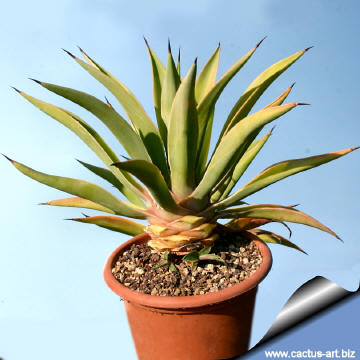 |
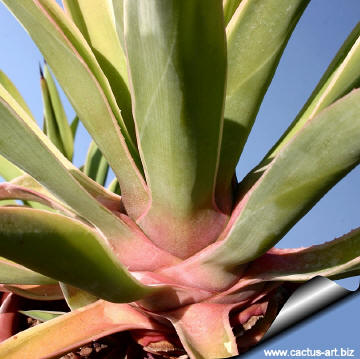 |
|
. |
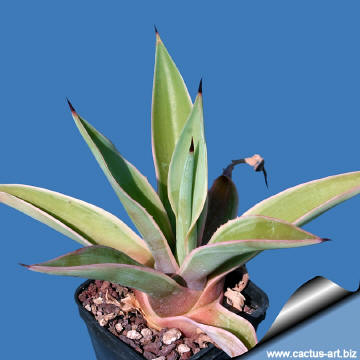 |
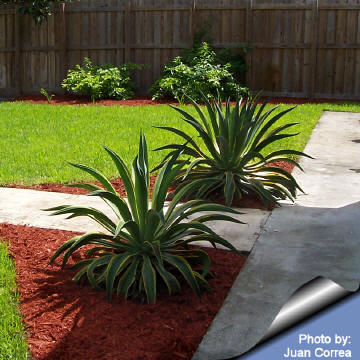
Photo by: Juan Correa |
|
Advertising
|
|
|
|
|
Family: Agavaceae
Scientific Name: Agave desmetiana hort. ex Baker (1877)
(nom. illeg.. Art. 53.1
Forma variegata
Origin:
A. Desmetiana
is found in cultivation only, its ancestors maybe it from Sinaloa
(Mexico), maybe from Cuba
Etymology: The
specific epithet honors Louis De Smet (1813-1887), a
Belgian horticulturist and nurseryman - this is sometimes misspelled as
desmettiana.
Synonyms:
|
|
|
|
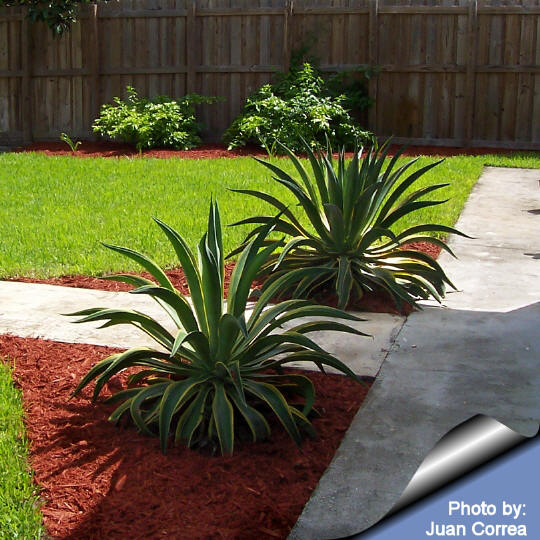
It has almost rubbery leaves which curve upward and then out, with light
green and cream variegation, very attractive when older.
Cultivation:
Agave desmetiana variegata is a relatively easy-to-grow
species. Seems pretty wimpy in hot, blazing sun, but does great in
partial sun to shade. It is relatively cold sensitive for an Agave, Just
a light freeze (-2° C) for an extended period can burn some leaves (but
can survive to at least – 6°, particularly when dry, even though
portion of a mature plant can ‘melt’)... but it's too beautiful to risk
not covering it on cold nights.
Need a very well-drained, soil. It grows fairly
fast in summer if provided with copious water but allows to dry
thoroughly before watering again (the more water and fertilizer this
plant gets the faster it will grow). During the winter months, one
should only water enough to keep the leaves from shrivelling.
It does great in containers or in the ground. Plants cultivated outdoors
are more drought tolerant and can take some heat and full sun. Winter
storms and rain can damage the outdoor plants (A physiological condition
called edema or oedema)
Remove suckers to show of the beauty and form of the individual rosette.
Propagation: Mostly
by
suckers which often are found growing around the base of the
plant, Remove the basal suckers (if available) in spring or summer
and let the cuttings dry for a few days before inserting in compost. It
may also propagate by bulbils found on the floral stalk.
Photo of conspecific taxa, varieties, forms and
cultivars of Agave desmetiana:

 |
|